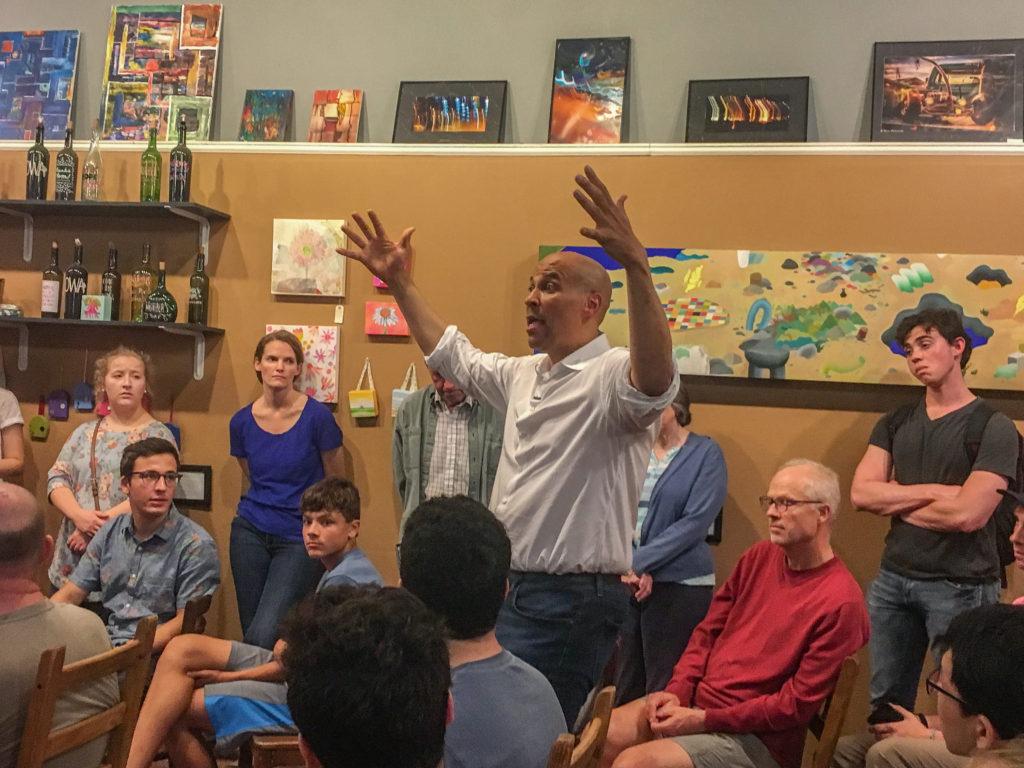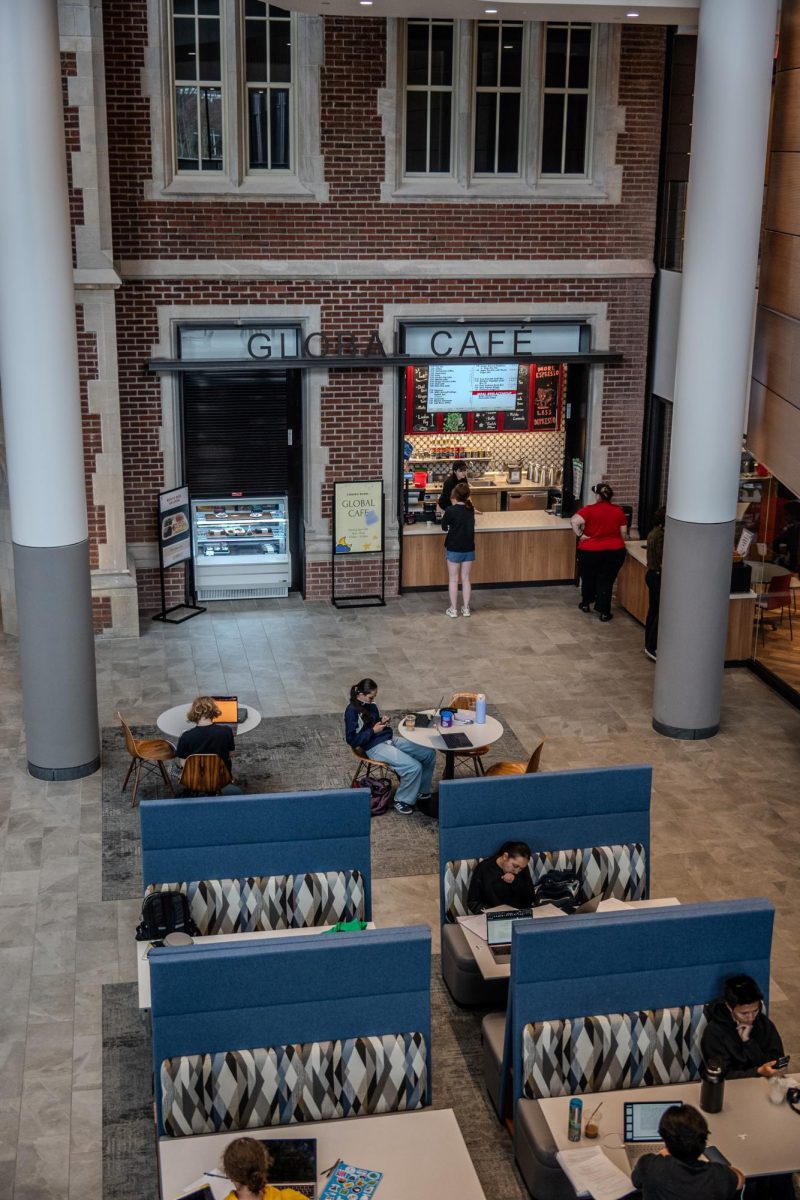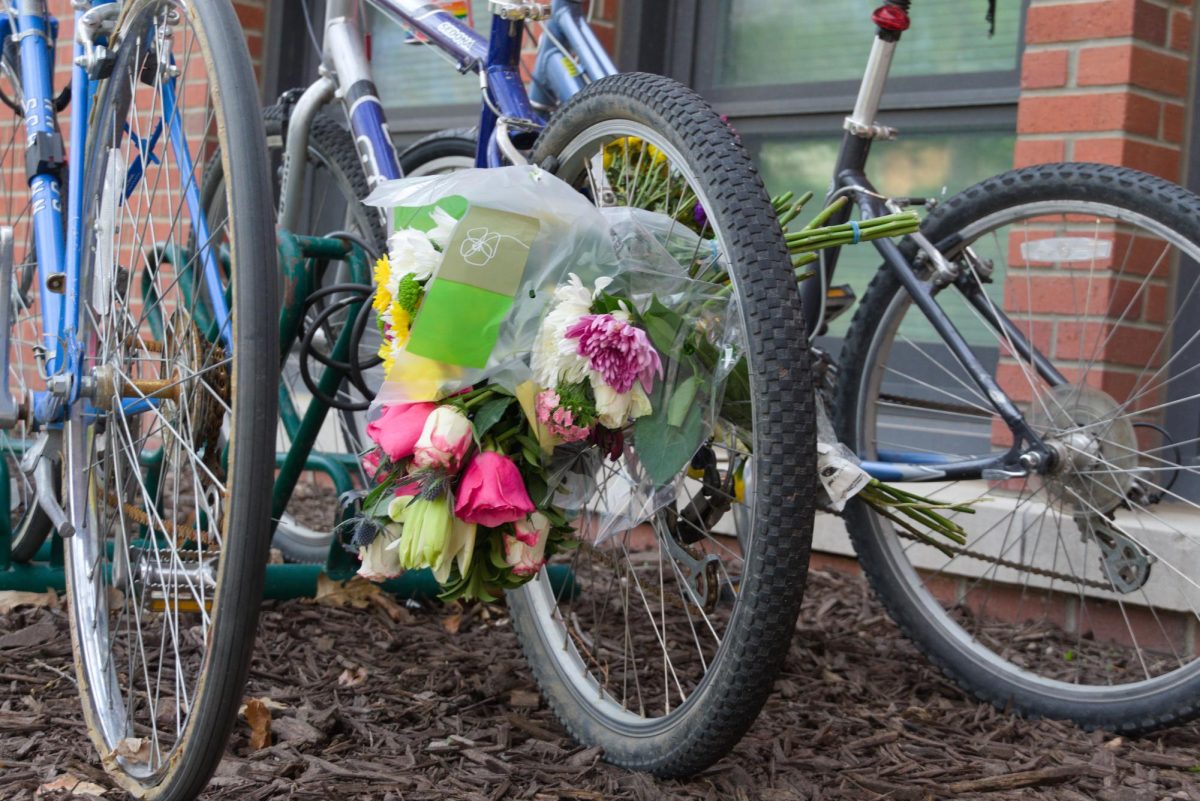
A clear sign of the rapidly approaching Iowa caucuses, Democratic presidential hopefuls continue to travel throughout the state. Whether large-scale rallies or more informal meet-and-greets, the frequent and widespread nature of candidates’ events provides Iowa residents with a unique opportunity to casually decide to go see a major politician in person.
Grinnell has been a stop on more than one campaign’s pre-caucus tour, and it was U.S. Senator Cory Booker’s turn to visit on Saturday, Sept. 21, at a meet-and-greet hosted at Saints Rest Coffee House.
Several attendees at Booker’s event talked about the unusual ease of access to national politics Iowans have during caucus season. “It’s the huge advantage of being in Iowa, that all the candidates come to your doorstep,” said Professor Peter Hanson, political science. “There’s almost no other place in the country where you can go meet them in person. I already know a lot about their records and their policy positions and that sort of thing, so this is just an opportunity to see them on the stump, see how they present themselves, how they think on their feet.”
College alumna and Alumni Student Connections committee member Claudia Beckwith ’77 said, “[We came] because we live in Grinnell, and we’ll see anybody who comes to Grinnell.”
Booker’s performance at the most recent Democratic debate was a common draw for attendees, such as Grinnell students Leia Sohn and Kaitlin Michaels, both ’23. Sohn said, “I didn’t really pay attention to him before that, but he did really, really well at the debate, so I wanted to look more into him.” Michaels said, “I was somewhat interested in him before [the debate], but … I want to hear more of his specific policy ideas.” Sohn added, “They miss a lot of topics at the debates.”
Grinnell resident Vicky Springer said, “I thought [Booker] won the third debate. I thought he really stood out, and it really impressed me, and he seemed really authentic about what he did in Newark … so I wanted to see him live.”
A number of students from New Jersey, the state Booker represents in the Senate, attended too. Dean Burrell ’22 said, “I just thought it would be cool to see him in such a small setting and hear him speak. He could be the next president.” New Jersey-based students were so active in asking questions that at one point Booker, joking that he hadn’t come to the Midwest to talk to people from his home state, said he would only call on Iowan attendees.
Booker’s team had plastered the front window of Saints Rest, above the raised platform at the front of the room, with CORY 2020 posters, but Booker didn’t spend much time on stage. Almost immediately after being introduced, he stepped down to walk back and forth between rows of chairs as he spoke for the remainder of the meet-and-greet.
At the event, Booker focused on a message of unity and healing framed with anecdotes from his childhood and career. He discussed climate change, family leave and the impact of individual action, as well as his opinion of the idea that the Democrats’ sole goal in 2020 should be to defeat Donald Trump: “Can’t we have bigger aspirations than that?”
Booker also briefly addressed his own lackluster polling (on the day of the event, the New York Times’s polling average had him at 2%). Citing Hillary Clinton’s lead over Barack Obama in the pre-caucus polls before the 2008 Democratic primary, he argued that polling so early in the race is an inaccurate predictor of future success.
Finishing his stump speech with a standard message from his campaign, “We will rise,” Booker switched over to answering audience questions, mostly from students. Those who spoke asked about topics ranging from mental health reform to modern-day segregation in U.S. schools to Congressional stalemates. After over an hour of discussion with the audience, Booker moved outside to take photos with attendees.
Waiting in line to speak with the candidate one-on-one, students and community members alike talked enthusiastically about the experience they’d had. Mary Jane Uzzi ’23 said, “I think it’s awesome that he was talking to real people. Obviously, we want to hear about policy, but it’s nice to hear his personal story too. You can get policy through research, but you can’t necessarily get that.”





















































